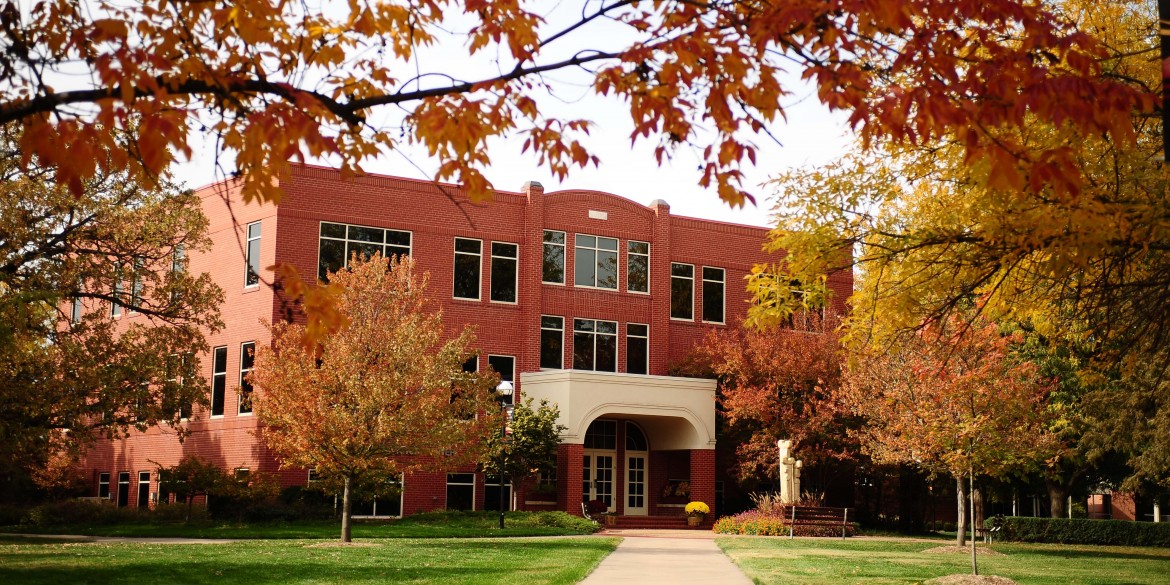Hesston College announced that it will welcome students back to campus and hold in-person classes for the 2020-21 academic year. The year will start with the first day of classes on August 17, which was the start date on the originally planned academic calendar.
Planning for the year will come with extra health and safety measures to protect against the transmission of coronavirus. The academic calendar will shift to eliminate semester breaks like fall break. On November 25, just prior to the Thanksgiving holiday, in-person fall semester classes will end and move to asynchronous online learning for the final week and a half of the fall semester.
“We have been closely monitoring the impact of coronavirus in our community and in the region, as well as recommendations from the Center for Disease Control (CDC), and we are confident that by taking extra precautions, we can welcome students back to campus for the new academic year,” said President Joseph A. Manickam.
A 12-person Reopening Work Group made up of faculty and staff representatives from key campus departments meet regularly to plan the logistics for a safe reopening, as well as policies that will ensure continued health and safety for the campus community moving forward.
“Welcoming our campus community back for the academic year will look different than we are used to,” said Deb Roth, vice president of Student Life. “We will have to make changes to many of the community practices that are part of Hesston College, but we recognize that this is for the safety of all, and we will find new, creative ways to prioritize community, which is foundational for our student experience.”
The college will leverage its smaller size to implement physical distancing practices wherever possible, including assigning single rooms at no additional cost to all students living in the college’s primary dorms, Erb Hall and Kauffman Court.
To accommodate single occupancy dorm rooms, the college will open and use every available housing unit, known as a mod. Hesston College also worked with Mennonite Disaster Service (MDS) to construct an extra room in the lounge area of each of the Kauffman Court mods, adding an additional 13 dorm rooms to campus.
Physical distancing practices will also be implemented as much as possible in classrooms, the dining hall and during chapel times. A new face mask policy will require mandatory face masks for all students, employees, contractors,and guests on campus where physical distancing practices are difficult to maintain.
In the dining hall, table configurations will allow for six feet of space between diners. Buffet-style service will be eliminated and will switch to cafeteria-style serving. More to-go meal options will also be offered for those who prefer to not eat meals in the traditional dining hall setting.
Chapels have traditionally been held with the entire campus community gathering in person two times per week for 30 minutes. The format for the 2020-21 year will separate students into “chapel houses” with a maximum of 30 individuals, including two faculty and/or staff leaders. One day per week, chapel will be a discussion-based time in chapel house groups, and the other chapel for the week will be an online presentation format.
“We are fortunate that we were able to test some of these physical distancing practices on a small scale during the spring 2020 semester with the students who remained on campus,” said President Manickam. “Those weeks spent with just a fraction of our students on campus allowed us to see what methods worked best and were safest for our campus community.”
While the majority of students during the spring 2020 semester returned to their homes for the last quarter of the year, about 50 students with legitimate reasons to stay, remained on campus to the end of the academic year. During that time, practices such as single rooms and dining hall staff service were implemented.
Roth reported that the remaining on-campus students reported that they felt safe on campus during the spring coronavirus outbreak with the practices the college had in place to ensure health.
“The college did the best job, in my eyes, to take care of my needs as a student as well as my personal needs,” said first-year student Kaytlen Keough, who remained on campus for the duration of the 2019-20 year. “Hesston College went above and beyond to make sure campus was safe and healthy for us.”
Hesston College is located in Harvey County, which was fortunate to see a comparatively small number of coronavirus cases during the spring outbreak. According to the Harvey County Health Department, as of June 15, 16 cases have been confirmed in the county since March, with 13 of the cases considered recovered, two deaths and one active case.
“To date, we are fortunate to be located in an area that has not been heavily impacted by coronavirus, and we pray that this continues,” said President Manickam. “Even so, we take seriously and will comply with the guidelines put in place by federal, state and local governments and public health professionals.”
Help Protect the Larks as they return to campus in August. The “Protect the Larks” campaign will help provide extra health and safety measures to campus incurred because of COVID-19.


